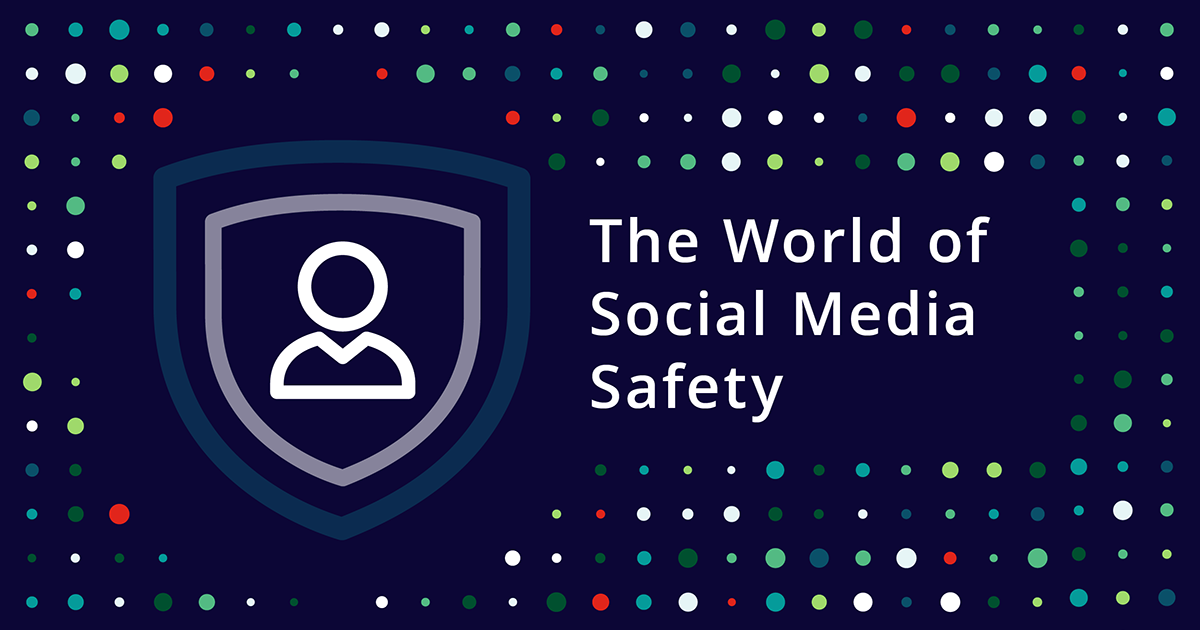
Cyber Monday: How to Avoid Online Scams and Still Score the Best Deals Ever!
Cyber Monday is coming on November 30, 2020! And after being cooped up from pandemica and being cash-strapped, boy we can’t wait to find some really GREAT deals online. (Instapot anyone??) Last year online shoppers spent $9.4 billion on Cyber Monday, and big retailers saw online sales jump 540% compared to an average day.1
So, despite everything, it’s safe to say that Cyber Monday 2020 will be one of the biggest shopping events of the year. Unfortunately that also means that online scammers will be out in FULL FORCE as well. Here’s how to avoid them so you can enjoy finding a few holiday deals.
Identify common scams
No one likes to live in paranoia land, but let’s be honest. You can’t defend against something you don’t know about. And unfortunately internet crime is on the rise, according to the FBI’s Internet Crime Complaint Center (IC3). The IC3 received an average of nearly 1,300 complaints every day in 2019.2 Here are some of the major scams out there according to Norton3 and the Federal Trade Commission.4
Fake shopping websites
Fake shopping websites try to scam you by advertising unbelievable prices that might be up to 75% off. They usually have similar URLs—but not identical—to the brand they’re trying to imitate. The fake website might ship you fake items in exchange for your money. Or they might just take your money and never send you anything at all.
Formjacking
Formjacking is when a scammer hacks a legitimate website and redirects unsuspecting shoppers to different URLs during the payment process. The fake URLs look similar, but they actually steal your credit card information.
Amazon scams
Amazon scams are on the rise now more than ever. New monthly phishing and fraudulent sites posing as Amazon spiked in March with the rise of COVID-19, then dipped, and then rose again in August according to Bolster Research.5 Hackers might change the URL slightly between when you land on the home page and when you checkout. Or the hackers might send you an email so when you click on the link, you land on a fraudulent site.
Fraudulent sites try to trick shoppers by using Amazon branding but fake URLs. They request bank or credit card information (instead of using your stored payment method, like the real Amazon site would). The fake sites often don’t require a password, and they might display a fake customer service phone number (even though the real Amazon site discourages phone support).
Puppy scams
Out of all the different types of online shopping scams, pet scams have increased the most this year. Some long-distance pet dealers sell sick or dying pets online. They might even claim your puppy is stuck at the airport customs office and they need more money to get it to you. And unfortunately, 70% of pet scam victims lose money (typically $700) according to the Better Business Bureau.6
Facemask and paper products scams
You’re probably no stranger to the hoarding and price gouging related to toilet paper, facemasks, and cleaning supply sales. But when COVID-19 rates started increasing, so did the online scams related to those products. Scammers tend to prey on pandemic fears and advertise limited quantities of essential supplies. Once they receive payment, they never deliver the supply.7
PayPal, Venmo, gift card, and wire transfer scams
According to a survey by AARP, 70% of Americans use payment apps like PayPal and Venmo.8 Venmo alone has seen a 52% increase in digital payments this year.9 And scammers can take advantage of users by promising goods, services, and even jobs—which they never deliver. All you have to do, they say, is pay their “preferred supplier” via Venmo (or some other platform). Oh, and they keep your money.
To be fair, PayPal promises to cover eligible purchases if you receive a wrong item or if you’re charged for something you didn’t purchase, but their Purchase Protection doesn’t cover some items. And Venmo recently made headlines for coming after a fraud victim for funds even AFTER the victim froze her checking account to prevent funds from being withdrawn.9:1
The reason the scam works is because peer-to-peer (P2P) payments, gift cards, and wire transfer act like cash and are difficult to trace. And P2P platforms can advance payment to the recipient before the funds have even left the other person’s bank account. That might make it difficult to reclaim lost money.
Fraudulent ads
Online ads are great for finding deals…until they overpromise and don’t deliver. Sometimes scammers will advertise luxury brands at ridiculously low prices. Others will entice you to click on them and then download viruses, spyware, and malware.10 The fake ad’s goal is to collect money or info from you without giving you anything in return.
Defend against the scam
Being a victim of an online shopping scam can be very costly. In fact, individuals and businesses lost over $3.5 billion to internet scams in 2019, according to IC3.2:1 So it’s crucial to do everything we can to avoid them. Here are some tips to do just that.
Double-check the details
“Verify requests in person or by phone, double check web and email addresses, and don’t follow the links provided in any messages,” advised Donna Gregory, the chief of IC3.2:2
To spot formjacking, for example, double check the URL before you enter your credit card details to make sure you’re still on the exact same website that you came from. Scammers might change a single letter in the URL to avoid detection. You can check your favorite shopping site ahead of time on Google’s Transparency Report to see if it might be dangerous to visit.
Update, update, update
In the last three days, I’ve had to update my security software twice. And it’s only October. If you think you’re protected by anti-virus software, now’s a good time to double-check and update if necessary. That way even if you accidentally click on a scam-y ad, you’ll have some level of protection against a virus or malware.
Guard your accounts
When shopping online, try to use your own private Wi-Fi. If you must go to a public space to shop, connect to public Wi-Fi safely. You should also practice caution when creating account passwords, using social media, and opening emails. And you should always—always—monitor your online bank transactions to make sure they are all legit.
DON’T pay with a gift card
Some scammers require payment by gift card or wire transfer…and that’s basically the same as forking over cash. (In other words, you can kiss your money goodbye!) To avoid fraud, consider paying for online purchases only with a credit card or debit card. This is because credit card companies and banks have a legal requirement under the Fair Credit Billing Act (FCBA) and the Electronic Funds Transfer Act to help you recover from fraud.11
If you don’t have access to a credit or debit card, you can also use a prepaid card. The fraud protection on these cards vary, though, and they might have fewer consumer protections than traditional credit or debit cards. For example, you need to register your Mastercard prepaid card BEFORE the fraud occurs in order to receive any sort of protection.12
DON’T send more money
Many scam artists will continue to steal money from unsuspecting shoppers by claiming they need even MORE money. For example, puppy scammers sometimes ask for more money to get the pet through customs.13 If someone asks you for more money for something you already paid for, that’s a red flag. Don’t send more money. Report the transaction as fraud.
Question impossible deals
Just last week my in-laws showed me an email they received from a “law office” claiming they might be eligible to inherit $1.4 million from a distant relative in Canada. All they had to do was send back some personal information…and pay a small lawyer fee. Other sites might advertise expensive freebies like an iPhone or an all-inclusive vacation. Don’t fall for this type of scam! If the promise seems too good to be true, it probably is.
Expect the best…and leave the rest
Many fraudulent sites have grammatical or spelling mistakes that a reputable website would never publish. Images might appear blurry or pixelated. And the logo in the upper left might not link to anywhere, even though on the real website it would link to the home page. Close out of these sites immediately and try to get back to the legitimate home page in a new window.
Report fraud ASAP
If you notice unauthorized charges on your bank or credit card accounts, or if you think you’ve been a victim of an online shopping scam, you should report it immediately. The Federal Trade Commission recommends contacting your ATM or card issuer ASAP and writing a follow-up letter to cover your bases.11:1
Prepare for the worst. Hope for the best!
Don’t let fear get the better of you. As Stephen King wrote in his book Different Seasons, “There’s no harm in hoping for the best as long as you’re prepared for the worst.” You can prepare for this year’s online shopping scams by taking a few precautions, like being mindful of possible changes to a website address and questioning sites that are full of errors or offer too-good-to-be true deals. When in doubt, check the Federal Trade Commission Consumer Information website for current scam alerts. Then, enjoy finding your Cyber Monday deals. Happy hunting!
Sources:
- Lucas, A. (2019, December 3). Cyber Monday online sales hit record $9.4 billion, boosted by late-night spending spree, Adobe says. Retrieved from: https://www.cnbc.com/2019/12/03/cyber-monday-online-sales-hit-record-9point4-billion-adobe-says.html.
- Staff. (2020, February 11). 2019 Internet Crime Report Released. Retrieved from: https://www.fbi.gov/news/stories/2019-internet-crime-report-released-021120.
- NortonLifeLock employee. (n.d.). The 5 most popular online scams to be aware of in 2020. Retrieved from: https://uk.norton.com/internetsecurity-online-scams-5-most-popular-scams-in-2020.html.
- Staff. (n.d.). Scam Tag: Shopping. Retrieved from: https://www.consumer.ftc.gov/taxonomy/term/876.
- Song, Y. (2020, October 8). How to Avoid Amazon Prime Day Scams. Retrieved from: https://bolster.ai/blog/how-to-avoid-amazon-prime-day-scams/.
- Staff. (2020, August 26). BBB Warning: Puppy Scam Reports Skyrocket During COVID-19 Pandemic. Retrieved from: https://www.bbb.org/article/news-releases/22363-is-that-quarantine-puppy-real-puppy-scam-reports-skyrocket-during-covid-19-pandemic-bbb-warns.
- Thomas, J. (2020, April 10). Scammed by that toilet paper or coronavirus face mask you bought online? Join the club. Retrieved from: https://www.chicagotribune.com/business/careers-finance/sns-scammed-by-toilet-paper-or-coronavirus-face-mask-bought-online-20200410-st25yqv65zhsdmu4zywysgnuzi-story.html.
- Staff. (n.d.). AARP Survey Finds Majority of Americans Using Payment Apps Unaware of Danger Posed by Scammer. Retrieved from: https://press.aarp.org/2020-5-12-AARP-Survey-Finds-Majority-of-Americans-Using-Payment-Apps-Unaware-of-Danger-Posed-by-Scammers.
- Rudegeair, P. (2020, September 24). Even in a Pandemic, Venmo Tells Conned Customers to Pay Up. Retrieved from: https://www.wsj.com/articles/even-in-a-pandemic-venmo-tells-conned-customers-to-pay-up-11600939826?mod=hp_lista_pos1.
- Méndez, R. (2017, March 7). Some online deals charge but don’t deliver. Retrieved from: https://www.consumer.ftc.gov/blog/2017/03/some-online-deals-charge-dont-deliver?page=3.
- Staff. (n.d.). Lost or Stolen Credit, ATM, and Debit Cards. Retrieved from: https://www.consumer.ftc.gov/articles/0213-lost-or-stolen-credit-atm-and-debit-cards.
- Staff. (n.d.). Safer than cash, digital first and accepted where you shop. Retrieved from: https://www.mastercard.us/en-us/personal/find-a-card/general-prepaid-mastercard.html.
- Staff. (n.d.). Consumer scam: Internet pet sales. Retrieved from: https://www.humanesociety.org/resources/consumer-scam-internet-pet-sales.



